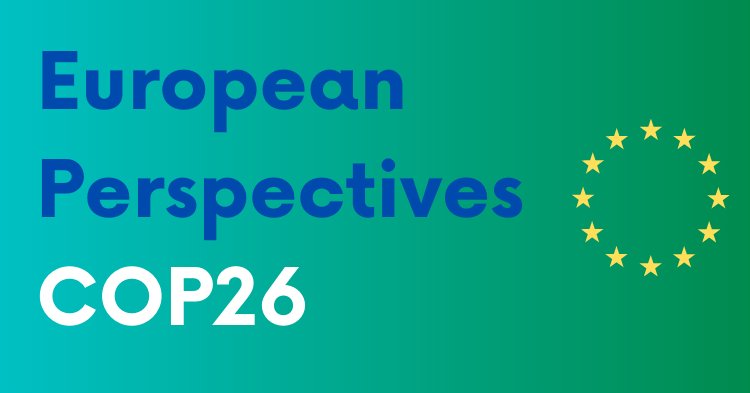Poland
Poland’s pathway towards climate neutrality is like an ambiguous Tinder date. It’s trying not to disclose its cards and despite its charm, it fails to commit. Facts? In December 2019 the Polish government was the only one not to support the goal of climate neutrality of the EU by 2050. However, at the COP26, the Deputy Minister of Climate Adam Guibourgé-Czetwertyński said that Poland does participate in the goal of climate neutrality as the EU Member State. Meanwhile, the Polish PM Mateusz Morawiecki says that Poland will reach the goal of climate neutrality “later”.
The lack of a clear vision of Poland’s climate policy is due to its dependence on coal, which produces about 70% of energy. Poland is eyeing to nuclear energy which could become the country’s baseload energy. That is why alongside France and nine other Member States, Poland is fighting to include nuclear energy in the EU Taxonomy of sustainable investments.
Poland’s participation in the COP26 was criticised because of its… secrecy. The government did not want to disclose the list of participants of the Polish delegation. In addition to that, shortly before Glasgow, Michał Kurtyka was replaced by Anna Moskwa at the post of the Minister of Climate. The Polish government needs to be more vocal on its energy situation and engage more professionals and the public on the topic of energy transition. Otherwise, Poland risks being associated with Russia, China or India which declare its wish to achieve climate neutrality… “later”.
France
“I no longer believe in negotiations with 145 States”. Interviewed by Le Taurillon on Thursday 18 November, the European MP, Pierre Larrouturou, denounced the COP26’s lack of ambition. France, which shone essentially through its effacement, signed with 80 other States a 30% reduction in methane emissions by 2030. This deadline should also symbolise the end of deforestation, to which the government has committed itself along with a hundred other countries.
For the leftover, France joined a coalition of a dozen countries to accelerate the withdrawal from fossil fuel production (Boga commitment). Finally, a few hours before the COP26’s closing and after much pressure from environmental NGOs, the Minister for Ecological Transition, Barbara Pompili, announced that France had joined the coalition agreeing to stop financing fossil fuel projects abroad by 2022.
While the President Emmanuel Macron had urged the world’s biggest greenhouse gas emitters to “raise their ambitions”, the so-called : “last chance” COP ended with a disappointing agreement, which only commits to a reduction in fossil fuels. Sandrine Rousseau sums up the lack of French initiative with a simple question: “Are we still capable ?”
Romania
Although Romania is undergoing its biggest political crisis since 1989, and is without a full cabinet since September, the COP26 conference was a topic discussed in the Romanian mainstream media, President Klaus Iohannis presented the objectives undertaken by Romania. He supports most of the EU goals, and also initiated a project for climate education in schools. Good idea, but we will see how this school subject will be taught in a Romanian school system that is very unreformed and disconnected from modernity. The biggest problems here in Romania related to environment are the illegal deforestations (closely linked to the political establishment - some political leaders, such as Gheorghe Flutur, the president of Suceava County Council, are known for being directly implicated in the “Forest Mafia”), the flooding caused by climate change which affects the country every summer, the problems in biodiversity - Romania having a lot of rare fauna in the Carpathian mountains - and last, but not least, opinions claiming that climate change isn’t real and that storms are caused by “God’s anger”. Nevertheless, Romania has the first city claiming climate neutrality, Brașov, a big city located in the heart of the Carpathians, where Allen Colliban has a project to assure the climate neutrality of the city by 2030. Also, Farul Constanța is the first professional football club in Europe to claim climate neutrality. In this difficult period for the country, COP26 was a source of jokes, with Greta Thunberg and the President, wearing a winter jacket, next to Boris Johnson. Klaus Iohannis’ approval dropped dramatically in the most recent months, because he is seen as the author of the political crisis ; this has resulted in the arrival of the anti-corruption, pro-European USR party into opposition and the very probable coming into power of the old rival in PNL’s communication line, the direct successor of the Communist Party, PSD.
Germany
While all eyes in Germany are turning towards the ongoing coalition talks, the COP26 negotiations did not go unnoticed by the public. The outgoing Chancellor Angela Merkel travelled to Glasgow herself and called for “concrete measures” to tackle the climate crisis. Merkel reiterated Germany’s goals to reduce emissions by 65 percent compared to 1990 levels by 2030, and to be climate-neutral by 2045.
Fighting the climate crisis was one of the most prominent issues prior to the 2021 elections, which saw the Green party reach its best result in its history. As one of the prospective coalition partners, the new government is expected to step up its game in this respect, however challenging this may be: Germany still relies heavily on coal and gas (37% net electricity generation in 2020) and CO2 emissions per capita are much higher than the EU’s average. Yet, in 2020, more than 50% of the energy provided came from renewables.
Germany aims to reach climate neutrality by exiting from nuclear energy as well as energy from coal-fired generation. The last three remaining nuclear power plants will be taken off the grid next year. Additionally, green investments are booming in Germany with many private companies pledging to climate ambitions alongside the COP26 negotiations. BMW, Volkswagen, Audi etc.are however missing on that list: Phasing out the traditional combustion engine and a speed limit on the Autobahn are not expected to be legislated very soon, albeit they overshadow most discussions on climate change in Germany – COP26 changed very little in that regard.
Italy
At COP26 Italy had the possibility to express its climate leadership, Setting itself between the signatories of a declaration in favour of the energetic transition. Some of the commitments accepted by the country include the 30% reduction of natural gas emissions; the stop of deforestation activities no later than 2030; a 10-years plan on growth and investments. On the European level, Italy aims to engage new relevant measures, in the frame of the climate package “Fit for 55”.
These are ambitious goals. As such, it is necessary first to fill the internal gaps in the country. It will be needed to add the necessary competences to diplomacy and public institutions, to include the climate topic in their policies. In Italy it is possible to find this polarization between different regions on energetic consumption. Many of them are still far from the European goals for climate neutrality, and even the most virtuous need to improve their performances.
As far as today, Italy has a plan on renewable sources, which excludes the nuclear option: to produce in the next 9 years over 70 billion watts from clean sources of energy, achieving a 70% share of production for 2030. Despite some difficulties as expressed before, Italy was the first to ideate Youth4Climate, with 400 youths from 186 countries. It is a proof of evidence of the sensibility of the country on the climate issue, a strong point for Italy which the country could use to increase the international consensus on the topic.
Greece
Summer 2021 in Greece was the hottest in the last 43 years, emphasizing the severe consequences of global warming. As the prime minister Kyriakos Mitsotakis declared, we have experienced “a record-breaking streak of days with temperatures over 40 degrees and we had to deal with forest fires of unprecedented intensity”. More than 1.000.000 acres of land have been destroyed this year in Greece. The environmental impact of that situation is already present, since floods are getting more intense every time it is raining.
However, except for this short-term outcome, the long-term ones will not be late to emerge. For this reason, Greece has to make important decisions about climate change, the reduction of carbon emissions and reforestation. So, as we have faced climate change to its apogee, Greece has decided to state in the COP26, 6 initiatives to help tackle the crisis, to the extent it can be tackled. The decarbonisation of maritime transport, the pioneering GR-eco strategy will eliminate more than 10 million tons of CO2, by gradually turning greek islands into 100% green and sustainable autonomous destinations.
Furthermore, Greece will take the advantage in offshore wind production, with an installed base of 2 GW by 2030 and in pumped-storage hydroelectricity. K. Mitsotakis also stated that Greece will be lignite-free at the latest by 2028, while all old lignite units will be phased out by 2023 and that 10% of our seas will be declared as no-catch zones by 2030. Finally, Greece is steadily transforming itself into a regional hub for green energy. The newly established Greek Climate Crisis Ministry will contribute to achieve these important, green goals. [1]
In Greece the COP26 was an important topic on the news and on online articles of greek sites. However, the Greek population is not aware of the necessity of the conference. The majority of Greeks have not taken into account how our actions have a huge impact on the environment. The steps that the Greek governments have made between the years are important, but not enough to overcome the consequences of the climate crisis.
In brief, indeed “we are running out of time, and we need to act now” as Mitsotakis mentioned. Nevertheless, is this action really going to have an impact on our environment or COP26 are just statements from politicians who need to get rid of the burden from their shoulders?
UK
This year, the UK was in the unique position of hosting the COP26 itself, as politicians, activists and concerned members of the public made their way to Glasgow, Scotland. As host, the UK hoped to be a major player in these negotiations, representing the concerns of British people over the climate crisis. However, reactions of the UK population themselves towards the COP26 have been extremely mixed.
This mixed reaction has been reflected by UK media. Declarations made by the UK government have hit headlines: for example, just before the COP26, it was promised that the UK would shift all of its electricity to clean sources by the end of 2035. They also emphasised their commitment to press for the fulfilment of promises made at the conference, as well as to support other international powers to reduce their collective use of coal. Speaking at the conference itself, Prime Minister Boris Johnson seemed optimistic but cautious, stating that ‘We’ve made a difference, we hope, for our planet and our people’, calling on other world leaders to assist the UK in achieving the world’s climate goals. This optimism, however, is not universal across the UK.
For many people who live in the UK, the COP26 was an attractive facade for empty promises. Just 1% of Britons hailed COP26 as a ‘big success’, with 30% describing it as a failure. PM Boris Johnson himself described his reaction to agreements at the COP as ‘tinged with disappointment’. The Prime Minister has received much criticism directed towards his performance at the COP, such as his use of a private jet to travel between London and Glasgow, as well as his decision to repeatedly not wear a mask. An image of the PM without a mask quickly attracted much media attention, as in the image he was accompanied by David Attenborough - wearing his mask!
Held in Scotland, the event could not avoid becoming a talking point within domestic UK politics, where separatist/unionist debates are increasingly present. First Minister of Scotland, Nicola Sturgeon - well known for her pro-European, pro-Scottish independence stance - attended the COP everyday, despite not having a seat at the negotiation table. While her supporters praised her for her commitment to the environment (the Scotsman branding her a ‘triumph’) her critics suggested that she may have used the COP26 as a PR opportunity, with others criticising the ‘poor organisation’ of the event under the supervision of the Scottish Government.
Despite a mix of reactions to the COP26, and the UK’s role in it, there are some things that are not in any doubt: firstly, the UK must act fast, collaboratively with the international community but especially on its own failures; and finally, the voices of those concerned for the climate in the UK cannot, and will not, be silenced.








Follow the comments: |
|
